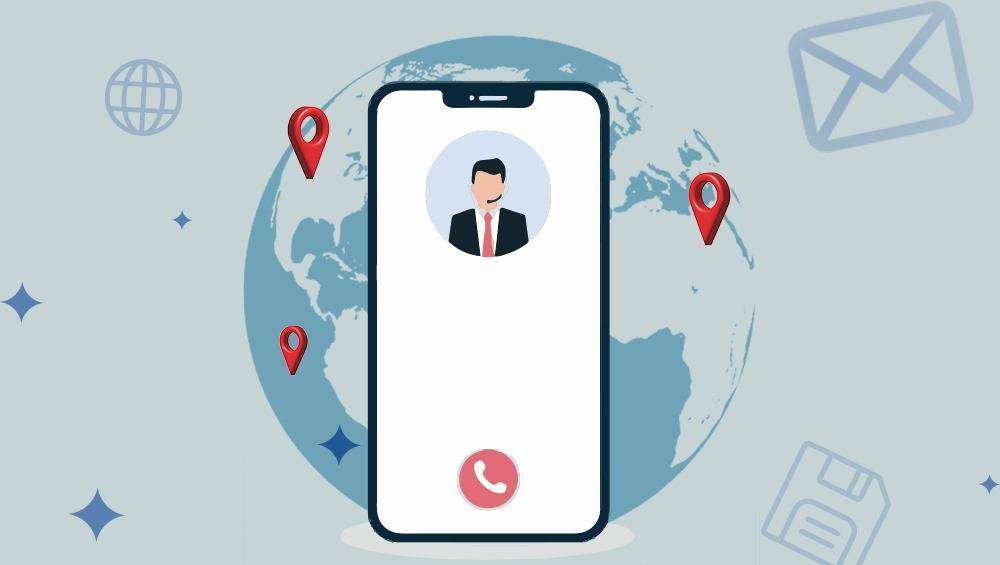In an era dominated by digital communication, Voice over Internet Protocol (VOIP) services have become a staple for individuals and businesses alike. The convenience and cost-effectiveness of VOIP are undeniable, but with the growing concern over privacy, many users wonder: which VOIP services cannot be traced? In this blog post, we will explore the intricacies of VOIP technology, examine the privacy features of popular services, and shed light on the question that looms large in the minds of many tech-savvy individuals.
Understanding VOIP Technology
Before delving into the world of untraceable VOIP services, it’s essential to grasp the basics of how VOIP works. Traditional phone calls use the Public Switched Telephone Network (PSTN), while VOIP relies on the internet to transmit voice data. This fundamental shift in infrastructure brings about both advantages and concerns, especially when it comes to privacy.
Which VOIP services cannot be traced?
The Privacy Challenge
Privacy concerns in the digital realm are not new, and VOIP is no exception. Many users seek secure and private communication, raising the question of which VOIP services cannot be traced. While no service can claim to be entirely untraceable, some providers prioritize user privacy more than others.
Examining Untraceable VOIP Services
Which VOIP services cannot be traced?
Signal
Signal is a popular messaging app that has expanded its features to include voice and video calls. Known for its robust end-to-end encryption, Signal has gained a reputation for prioritizing user privacy. Which VOIP services cannot be traced? Signal is often lauded for its commitment to keeping user communications secure and confidential.
Wire
Wire is another player in the VOIP arena that emphasizes user privacy. The service boasts end-to-end encryption for all communications, including voice calls. Wire’s dedication to secure communication makes it a strong contender when considering which VOIP services cannot be traced.
The Dark Web and Untraceable VOIP
The dark web, a hidden part of the internet accessible only through specific software, has long been associated with clandestine activities. Users on the dark web often seek which VOIP services cannot be traced to maintain anonymity. While some may assume that the dark web exclusively employs untraceable VOIP services, the reality is more nuanced.
Tor Browser
The Tor Browser, which provides access to the dark web, does not inherently offer untraceable VOIP services. While the browser itself enhances anonymity by routing traffic through a series of volunteer-operated servers, additional steps are required to secure VOIP communications. Users on the dark web must still carefully evaluate which VOIP services cannot be traced to avoid potential privacy pitfalls.
Session
Session is a privacy-focused messaging and VOIP app designed with anonymity in mind. While not exclusive to the dark web, Session aims to provide a secure communication platform where users can discuss matters without fear of surveillance. Which VOIP services cannot be traced on the dark web? Session is often recommended for those seeking enhanced privacy in their digital communications.
Encryption and Untraceability
Encryption is a critical component when evaluating which VOIP services cannot be traced. End-to-end encryption ensures that only the intended recipient can decipher the communication, protecting it from interception. While several VOIP services implement encryption, the strength and type of encryption used can vary.
WhatsApp, a widely used messaging and VOIP app, employs end-to-end encryption for all communications. This means that, theoretically, only the sender and recipient can access the content of their messages and calls. When considering which VOIP services cannot be traced, WhatsApp often stands out for its commitment to securing user data.
Silent Phone
Silent Phone is a VOIP service that places a strong emphasis on security and privacy. Offering end-to-end encryption for calls, messages, and file transfers, Silent Phone is often recommended in discussions about which VOIP services cannot be traced. Users seeking a balance between communication convenience and privacy often turn to Silent Phone.
Conclusion
The quest for untraceable VOIP services is inherently challenging in a world where digital footprints are an inevitable part of online communication. While no service can offer absolute anonymity, several options prioritize user privacy through robust encryption and security measures.
In the search for which VOIP services cannot be traced, users must carefully consider their priorities. Whether opting for mainstream services like Signal or Wire, exploring the dark web with the Tor Browser, or embracing privacy-centric platforms like Session and Silent Phone, the key lies in understanding the technology and making informed choices that align with individual privacy preferences. As the digital landscape continues to evolve, the pursuit of untraceable VOIP services remains a dynamic and ongoing conversation.
